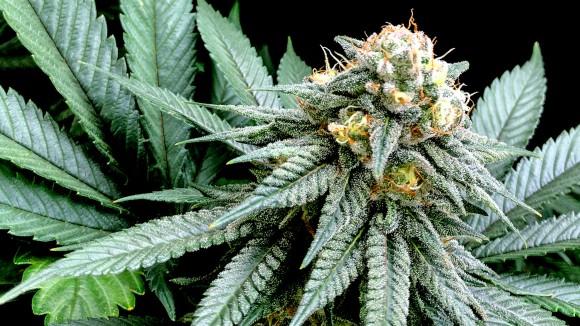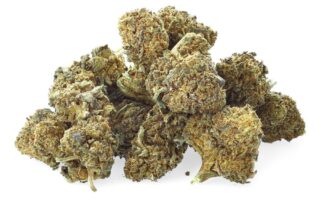Exploring the Mind: The Effects of Cannabinoids on the Brain
In the intricate landscape of brain chemistry, where neurons dance and synapses spark, cannabinoids have emerged as intriguing players in the symphony of human cognition and emotion. Often associated with recreational use and medicinal potential, these compounds—derived primarily from the cannabis plant—are more than mere substances of debate; they hold the key to unlocking mysteries about our own neural pathways. As researchers delve deeper into the effects of cannabinoids on the brain, they reveal a complex tapestry woven with potential benefits and risks alike. From the modulation of mood and memory to the management of pain and anxiety, understanding how cannabinoids interact with our brain’s receptors invites us to rethink our perceptions of both the mind and the plant that has captivated humanity for centuries. Join us as we navigate this fascinating exploration, uncovering the multifaceted effects of cannabinoids on the brain and what they mean for the future of both science and society.
Table of Contents
- Exploring the Neuropharmacology of Cannabinoids and Their Impact on Cognitive Function
- Understanding the Emotional Landscape: Cannabinoids and Their Influence on Mental Health
- Breaking Down the Therapeutic Potential: Cannabinoids in the Treatment of Neurological Disorders
- Navigating Safe Use: Recommendations for Cannabinoid Consumption and Brain Health
- Q&A
- The Conclusion
Exploring the Neuropharmacology of Cannabinoids and Their Impact on Cognitive Function
The intricacies of cannabinoid interactions with the brain’s neuropharmacological pathways underscore the profound complexity of these compounds. Cannabinoids, primarily Δ9-tetrahydrocannabinol (THC) and cannabidiol (CBD), interact with the endocannabinoid system, which plays a pivotal role in regulating various cognitive functions. Research suggests that cannabinoids can modulate neurotransmitter release and impact neuroplasticity, potentially influencing memory, attention, and decision-making processes. These interactions may lead to both cognitive enhancement in low to moderate doses and cognitive impairment at higher doses, presenting a double-edged sword concerning their use and effects on mental performance.
In understanding the cognitive effects of cannabinoids, it is essential to consider various factors such as dosage, individual neurobiology, and the specific cannabinoid profile. Current studies indicate that low doses of CBD may have protective effects against anxiety and deficits in memory, while THC at elevated levels is often linked to short-term impairments in executive function and memory retention. The following table illustrates some potential effects of cannabinoids on cognitive processes:
| Cannabinoid | Dosage Range | Potential Cognitive Effect |
|---|---|---|
| THC | Low | Minimal impairment, improved creativity |
| THC | High | Short-term memory loss, impaired attention |
| CBD | Low | Reduced anxiety, enhanced focus |
| CBD | High | Minimal cognitive impairment, sedative effects |
Understanding the Emotional Landscape: Cannabinoids and Their Influence on Mental Health
The intricate relationship between cannabinoids and mental health remains a topic of significant interest and research. At the heart of this exploration are the two primary cannabinoids found in cannabis: tetrahydrocannabinol (THC) and cannabidiol (CBD). Both compounds interact with the endocannabinoid system, a network of receptors that plays a vital role in regulating mood, anxiety, and stress responses. The effects of these cannabinoids can vary widely based on individual biology, dosage, and method of consumption, leading to a diverse emotional landscape. Some users report feelings of relaxation and euphoria, while others may experience heightened levels of anxiety or even paranoia, particularly with high doses of THC.
Research indicates that CBD, in particular, may offer therapeutic benefits for various mental health conditions such as anxiety, depression, and even post-traumatic stress disorder (PTSD). Unlike THC, CBD does not produce psychoactive effects, making it an appealing option for those seeking relief without the “high.” The effects can be summarized in the following key points:
- Anxiolytic properties: CBD may help reduce anxiety levels.
- Neuroprotective effects: Cannabinoids might aid in protecting brain cells.
- Potential for mood enhancement: Some studies suggest improvements in overall mood with regular use.
Breaking Down the Therapeutic Potential: Cannabinoids in the Treatment of Neurological Disorders
The exploration of cannabinoids, particularly tetrahydrocannabinol (THC) and cannabidiol (CBD), has revealed promising results in the management of neurological disorders. Research indicates that these compounds interact with the endocannabinoid system—a complex network of receptors that play a vital role in regulating various physiological processes. By modulating neurotransmitter release, cannabinoids may alleviate symptoms such as spasticity, chronic pain, and seizures, offering a novel approach to treatment where traditional medications often fall short. This effect is particularly notable in conditions like multiple sclerosis, epilepsy, and Parkinson’s disease, where inflammation and neuronal excitability are significant contributors to patient suffering.
Moreover, cannabinoids exhibit potential neuroprotective properties, which could prove beneficial in preventing neurodegenerative diseases. Early studies suggest that these compounds might help reduce oxidative stress and inflammation, which are crucial factors in neuronal damage. The following table summarizes some key findings on the therapeutic implications of cannabinoids:
| Condition | Benefits of Cannabinoids |
|---|---|
| Multiple Sclerosis | Reduces spasticity and improves mobility |
| Epilepsy | Decreases seizure frequency |
| Parkinson’s Disease | Alleviates tremors and enhances quality of life |
As we continue to investigate the intricacies of how cannabinoids affect brain function, it becomes increasingly crucial to adopt a research-driven perspective. Combining clinical studies with anecdotal evidence can unravel the significant impact these compounds may have on the management of neurological disorders, opening doors to treatments that prioritize both effectiveness and patient comfort.
Navigating Safe Use: Recommendations for Cannabinoid Consumption and Brain Health
As the discourse around cannabinoid consumption evolves, so too does the necessity for informed practices that support overall brain health. To safely incorporate cannabinoids into your wellness routine, consider the following recommendations:
- Know Your Source: Always choose products from reputable sources that provide third-party lab testing results. This ensures the safety and potency of the cannabinoids.
- Start Low, Go Slow: Begin with a low dose and gradually increase it as needed. This approach helps your body acclimate while minimizing adverse effects.
- Stay Educated: Understand the differences between cannabinoids like CBD and THC, as their effects and legalities can vary significantly.
- Monitor Your Body: Pay attention to how cannabinoids affect your mood, cognition, and overall well-being. Adjust usage based on your personal experiences.
- Consult Professionals: Seek advice from healthcare practitioners, especially if you have underlying health conditions or are on medications.
Additionally, recognizing the potential neuroprotective properties of cannabinoids is essential. Research suggests that certain cannabinoids might help in managing neuroinflammation and oxidative stress, which are key factors in many neurodegenerative disorders. Implementing these strategies can contribute to both safety and efficacy:
| Strategies for Brain Health | Potential Benefits |
|---|---|
| Regular Exercise | Enhances cognitive function and reduces anxiety. |
| Balanced Diet | Supports overall brain health and may improve cannabinoid efficacy. |
| Mindfulness Practices | Promotes mental clarity and emotional regulation. |
Q&A
Q&A: Exploring the Effects of Cannabinoids on the Brain
Q1: What are cannabinoids, and where do they come from?
A1: Cannabinoids are a unique class of chemical compounds that interact with the body’s endocannabinoid system (ECS). The most well-known cannabinoids—such as THC (tetrahydrocannabinol) and CBD (cannabidiol)—are derived from the cannabis plant, but they can also be synthesized in laboratories. The ECS, which plays a crucial role in regulating various physiological processes, is found in nearly every mammal, making cannabinoids a fascinating subject for research.
Q2: How do cannabinoids affect the brain?
A2: Cannabinoids primarily affect the brain by binding to cannabinoid receptors (CB1 and CB2) located throughout the central nervous system and peripheral organs. When THC binds to these receptors, it can induce feelings of euphoria, relaxation, and even paranoia, depending on the dose and individual sensitivity. CBD, on the other hand, has a more subtle influence, often promoting a calming effect without the high associated with THC. This complex interplay can lead to both therapeutic effects and potential drawbacks.
Q3: What are some potential therapeutic effects of cannabinoids on brain health?
A3: Research suggests that cannabinoids might have neuroprotective properties. They are being explored for their potential to alleviate symptoms associated with a variety of neurological disorders, including epilepsy, multiple sclerosis, and Alzheimer’s disease. Studies have indicated that cannabinoids can help reduce inflammation in the brain, protect cells from apoptosis (cell death), and promote neurogenesis, the process of forming new neurons.
Q4: Are there any negative effects of cannabinoid use on the brain?
A4: Yes, while cannabinoids can have therapeutic benefits, they may also have adverse effects, particularly with heavy or prolonged use. THC, for instance, has been linked to short-term memory impairment and altered judgment. Long-term use, especially starting in adolescence, may increase the risk of developing mental health issues such as anxiety, depression, or psychosis in susceptible individuals. It’s important to approach cannabinoid use with caution and awareness of these potential risks.
Q5: How do cannabinoids interact with other medications?
A5: Cannabinoids can interact with various medications, impacting their effectiveness and safety. For example, both cannabinoids and certain medications are metabolized in the liver by similar enzymatic pathways. This shared metabolic route can lead to increased or decreased concentration of other drugs in the bloodstream, potentially causing unforeseen effects or reducing therapeutic efficacy. Anyone considering cannabinoids in conjunction with other medications should consult a healthcare provider for personalized guidance.
Q6: What does current research say about cannabinoids and mental health?
A6: Current research is mixed. While some studies suggest that CBD may help reduce anxiety and promote stable mood, other research indicates that THC could exacerbate anxiety or lead to dependency issues. Ongoing studies aim to clarify these effects and identify the therapeutic windows and formulations that may yield positive mental health outcomes without significant drawbacks. As science navigates this intricate landscape, individual responses can vary widely.
Q7: What is the future of cannabinoid research in relation to brain health?
A7: As legal regulations surrounding cannabis continue to evolve, so does the interest in cannabinoid research. Future studies are expected to focus on more nuanced evaluations of cannabinoid profiles, dosing, and delivery methods, moving from single compounds to whole-plant therapies. Additionally, understanding the genetic and environmental factors that influence individual responses to cannabinoids will be key in tailoring effective treatments for brain health and beyond.
—
Conclusion: The marijuana plant offers a vast world of biochemical interactions that influence the human brain, both positively and negatively. As research advances, a more nuanced understanding will help pave the way for safe and effective cannabinoid therapies.
The Conclusion
As we delve into the intricate dance between cannabinoids and the human brain, we find ourselves at the crossroads of science and the ever-present mysteries of our biology. While our understanding grows, revealing both the allure and potential pitfalls of these compounds, it becomes clear that cannabinoids are more than mere chemical agents; they are a testament to the complexity of our neural pathways and the delicate balance that governs our mental landscape.
The effects of cannabinoids are as varied as the individuals they touch, influencing mood, cognition, and perception in ways that can both soothe and disrupt. As research continues to unravel the layers of this relationship, we stand on the brink of unprecedented findings that hold promise for therapeutic applications, as well as cautionary tales of misuse.
In navigating the future, it is vital to approach cannabinoids with a blend of curiosity and caution—acknowledging their potential while respecting their power. The journey into the realm of cannabinoids and the brain is far from over; it invites us to ponder deeper questions about wellness, consciousness, and the very nature of our existence. As we continue to explore, let us remain vigilant stewards of knowledge, embracing both the opportunities and responsibilities that come with unlocking the secrets of the mind.



